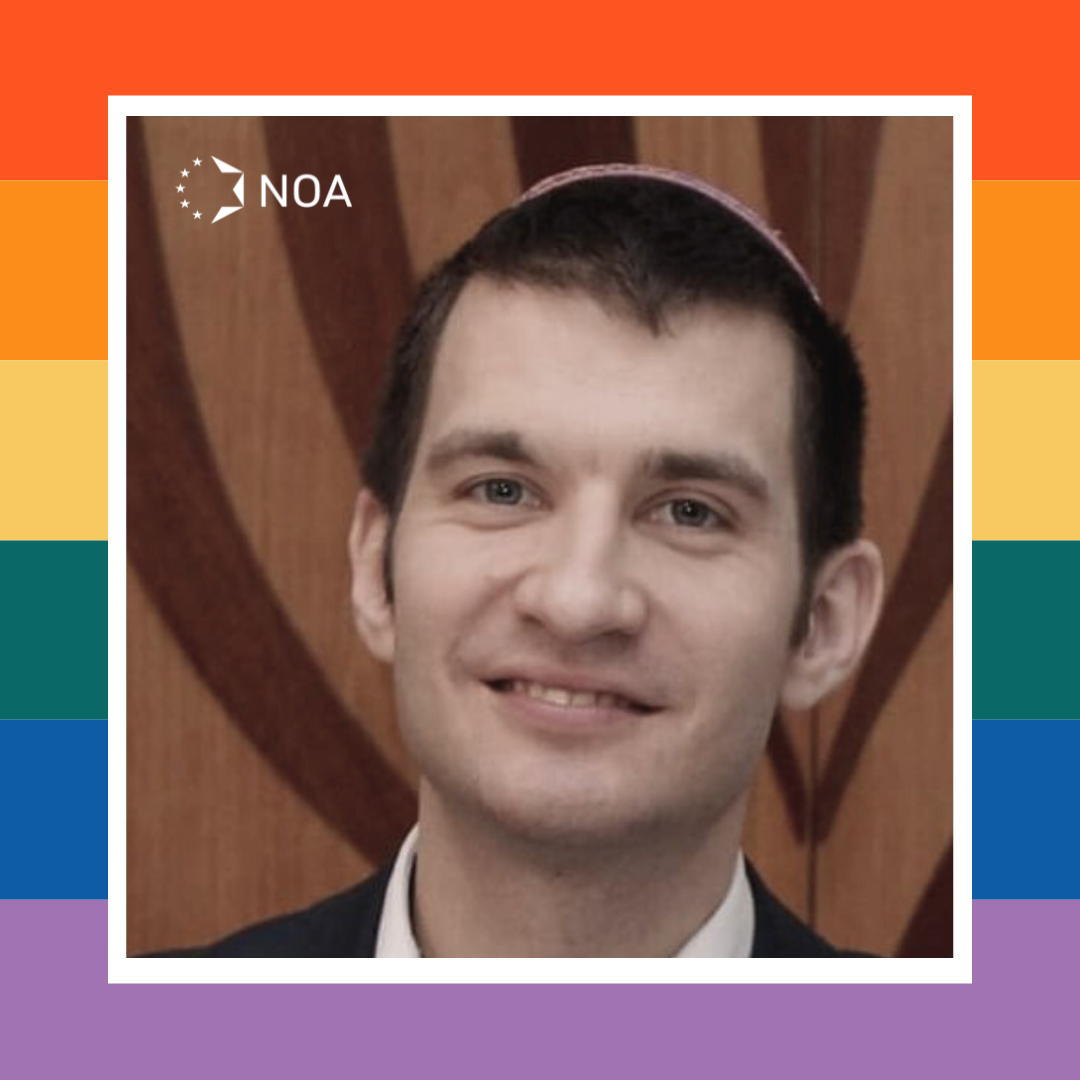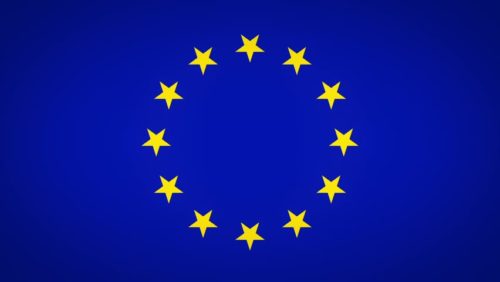An inside perspective from Jewish LGBTQ+ activists in Europe: Rabbi Mati Kirschenbaum

To mark #PrideMonth, the NOA project is speaking with LGBTQ+ Jewish activists in Europe on the positives and challenges they are facing today.
Rabbi Mati Kirschenbaum, a freelance rabbi sharing his time between London, UK and Poland, told us about how European Jewish communities need to work together when it comes to LGBTQ+ rights:
As a Polish Jew in the UK, I’m aware of the differences that effect LGBTQ+ Jewish life between the different parts of Europe, as Europe is diverse in its economic and social development.
The UK is quite high on the list of progressive societies when it comes to freedoms for LGBTQ+ people. Likewise, the Reform and Liberal movements in Judaism are the most welcoming organized religious bodies that embrace and affirm LGBTQ+ Jews in Europe. It also happens against the backdrop of societies which embrace LGBTQ+ communities.
At the same time, this is not the experience of the majority of European LGBTQ+ Jews who live either in communities that are not as welcoming, or in countries that are not as welcoming, or both.
We can look at the example of other European countries with large Jewish populations: France and Germany. Both are quite progressive countries when it comes to LGBTQ+ rights, but compared to the UK, they are not as vibrant when it comes to infrastructure for the LGBTQ+ Jewish community. In both countries there are organizations working to change that, but compared to the UK, both are relatively recent. It might be connected to the relative weakness of the Progressive Jewish movement in these countries; Progressive Judaism is only just developing there. It’s also partly country-specific. In Germany, the majority of Jews came from former the Soviet Union and brought some of those attitudes that being LGBTQ+ is something that is not spoken about and that is stigmatized. Now, the younger generation that grew up in Germany has the knowledge to tackle these issues.
This discrepancy towards Jewish LGBTQ+ rights between European countries grows even more when you look at countries with smaller Jewish communities. And this is exactly where activists and local leaders make a difference. In countries where the larger society does not embrace LGBTQ+ people, then there’s also no impetus for the Jewish community to do it either. In those cases, it’s up to local Jewish leaders to sway the internal dynamic of the community to be welcoming. And those leaders are gamechangers.
Their impact is higher, but it’s harder for them to work. This calls for a great deal of cooperation between more established LGBTQ+ structures in the countries with bigger populations with these lone wolf activists in smaller countries. For them to get knowledge, expertise, and the courage to act. To connect them with LGBTQ+ leaders in larger communities and share good
practices. And vice versa – to share the creativity of those activists working in more difficult environments; it could be invigorating for those in the bigger, established communities.
The most important issue here is not to treat countries as separate entities, because the Jewish community in Europe is too small for this. It’s particularly crucial right now, when we are seeing a wide level of European Jewish migration. In the wake of the Ukraine war, Jews are becoming refugees again, migrating from Ukraine to Europe, and among them are LGBTQ+ Jews. It calls for a coordinated European Jewish response to welcome them not just as Jews, not just as Ukrainian Jews, but also the LGBTQ+ Ukrainian Jews.
It is in Jews’ best interest to condemn homophobia coming from any government or political party in Europe. Of course, this is not easy for all institutionalized Jewish communities. For example, those that are tied to Orthodox values might think they need to take a nuanced stance to condemn homophobia; they don’t necessarily want to be seen affirming the LGBTQ+ rights movement. But we can all agree that Jewish communities can stand up and voice their opposition to intolerance towards all minority groups, because that goes against Jewish values of loving your neighbor.
This is a question of human rights, and of Jewish opposition to the weak being oppressed. It is tied to the Jewish commitment to democracy. It also calls for Jewish communities to speak out against anti-democratic tendencies in their respective countries. When freedom of speech is endangered, it is a threat to the Jewish continuity in that country. Because without the protection of freedom of speech, the Jewish community’s continuity is then dependent on the graces of the political leadership. It’s much better to speak out before the situation comes to that; to defend democracy whenever its needed.
Of course, this is much more difficult in countries that are not democratic. In non-democratic societies – there are such countries under the Council of Europe – I would embrace a policy of creating a democratic climate internally within the community, and when it comes to LGBTQ+ rights to create safe spaces within the community. It’s a difficult position, where Jewish leaders need to effectively play the official tune outwardly, or practice silence, but then have an active policy of embracing LGBTQ+ Jews internally and value shifting inside the community. These leaders would need a lot of support from the larger European Jewish community.
There isn’t a single policy for ensuring LGBTQ+ equality within Jewish communities in Europe. It is as diverse as Europe is diverse. But what we do need is European Jewish solidarity.

 NOA is co-funded by the Rights, Equality and Citizenship Programme (2014-2020) of the European Union
NOA is co-funded by the Rights, Equality and Citizenship Programme (2014-2020) of the European Union